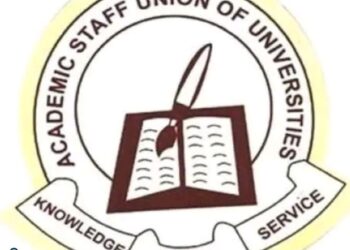By Prince John O. Adegbola
In a country where the cost of living rises daily, and civil servants struggle to survive, it is nothing short of criminal for a government to exploit its workforce. This is the tragic reality in Ogun State, Nigeria, where successive governments have repeatedly violated workers’ salaries through the fraudulent non-remittance of pension deductions, cooperative contributions, and other statutory entitlements.
Since 1999, Ogun State has exploited the labor of its workers, treating them not as partners in development but as expendable tools. According to labor sources, over ₦82 billion in deductions from workers’ salaries remain unremitted, money that should have gone toward pensions, savings, and union cooperatives. Instead, it has vanished into a bottomless pit of bureaucratic corruption and reckless governance.
This problem began in the early years of the Fourth Republic under Governor Olusegun Osoba (1999–2003), who may have set the stage for lax financial oversight. While his administration initiated some reforms, the culture of non-remittance began to take root without opposition.
Governor Gbenga Daniel (2003–2011) followed, whose eight-year tenure saw significant infrastructural development but showed little regard for workers’ rights. Salary deductions were made consistently, but remittances to cooperative societies and pension funds were delayed or entirely withheld. Despite workers’ pleas, their cries were drowned out by political propaganda.
Governor Ibikunle Amosun (2011–2019) inherited this mess and promised to rectify it. Instead, the situation worsened under his administration, with arrears increasing. While he launched impressive construction projects, he left workers in a precarious position, owed, ignored, and disrespected. His administration mastered the art of blaming previous governments while digging a deeper hole of financial irresponsibility.
Now, under Governor Dapo Abiodun (2019–present), the burden has reached a critical point. Despite multiple meetings, promises, memoranda of understanding, and photo opportunities with labor leaders, workers continue to suffer. Salary deductions are still being withheld without justification. Even with alarming labor statistics and threats of indefinite strikes, the government’s response has been lackluster, filled with empty rhetoric in the face of real human suffering.
Let us be clear: a state that deducts money from its workers and refuses to remit it is not merely inefficient; it is stealing. The workers of Ogun State do not ask for luxuries. They demand what is rightfully theirs, wages honestly earned and deducted under signed agreements. The non-remittance of these funds is not just a breach of trust; it is a violation of the Nigerian Constitution, labor laws, and every moral code of governance.
It is even more shameful when we consider that these same governors, past and present, travel abroad for medical treatment, educate their children overseas, and live lavishly while the average civil servant in Ogun State struggles to pay rent, access healthcare, or feed their families.
The ongoing strike by Ogun State workers is not just justified; it is noble. For how long will they work while being exploited? For how long will they contribute while being defrauded? As stated in the holy scriptures, “You shall not muzzle an ox while it treads out the grain” (Deuteronomy 25:4). In Yoruba parlance, “Ẹni tí ó bá ṣíṣe, l’ó yẹ kí ó jẹun.” (He who labors deserves to eat.)
Governor Dapo Abiodun must stop playing the blame game and take decisive action. The workers have waited long enough. His administration must conduct a full audit of all deductions and remittances since 1999 and implement immediate repayment plans that are legally backed and have enforceable timelines. Enough with the excuses and insincerity.
Stakeholders in the House of Assembly, labor unions, civil society, and the media must also move beyond complacency. There must be consequences for financial impunity. A state that robs its workforce endangers itself. If Ogun is to regain its pride as the Gateway State, it must begin by restoring dignity to its workers through action, not mere promises.
Let this be the final call. Workers are not beggars; they are the engine of the state. When the state steals from them, it mortgages its very soul.





